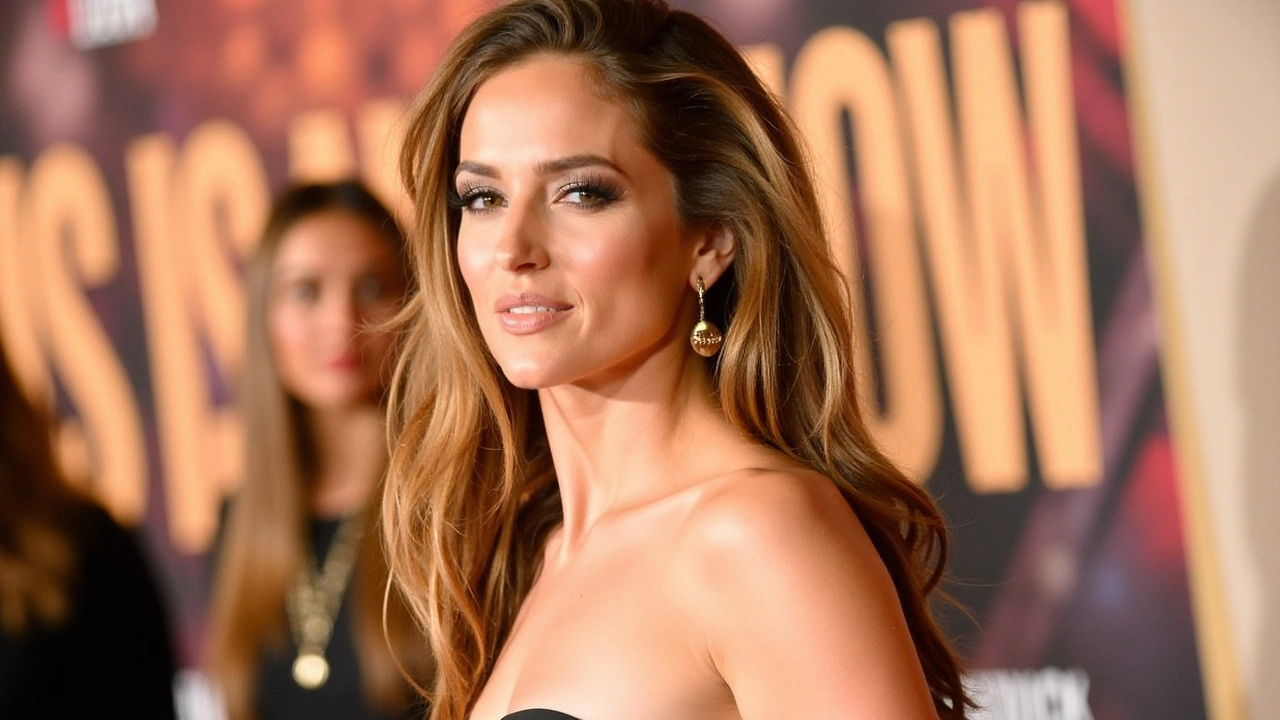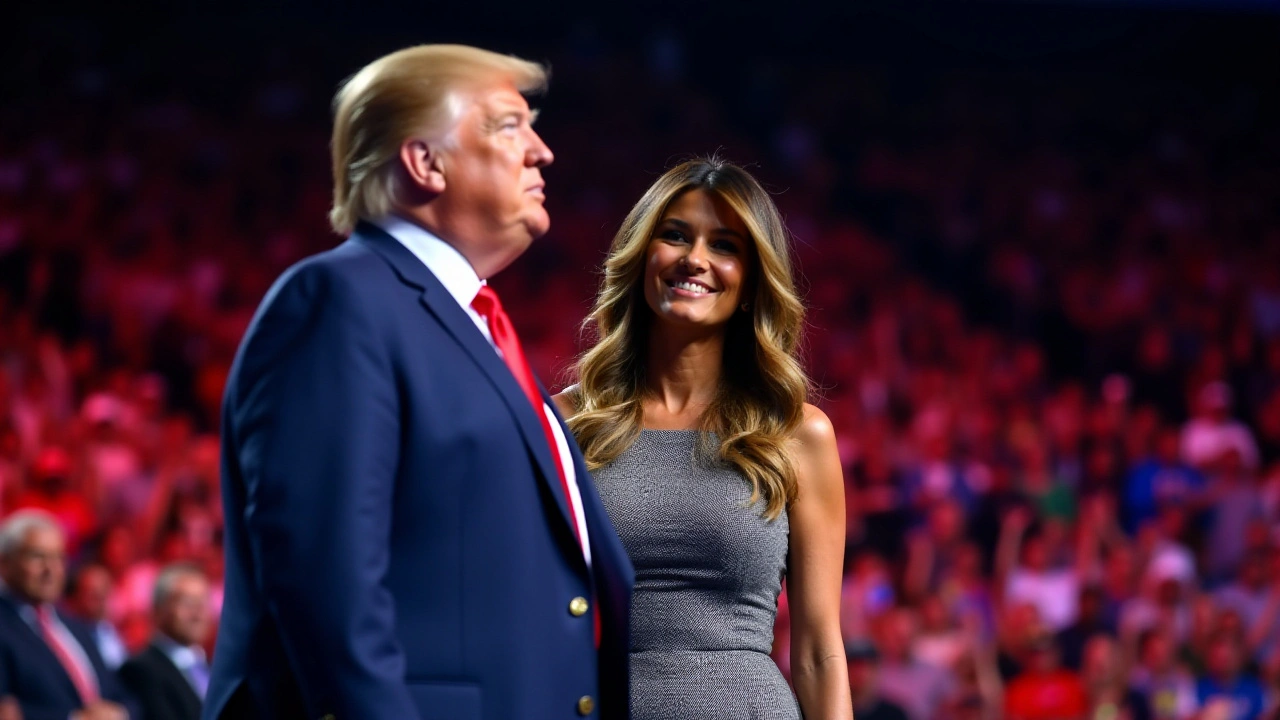Jennifer Lopez and Bad Bunny Lead Support for Kamala Harris Amid Trump's Puerto Rico Controversy

A-List Stars Back Kamala Harris After Offensive Remarks
In a significant show of support, some of the world's most renowned entertainers—Jennifer Lopez, Bad Bunny, Ricky Martin, and Luis Fonsi—have banded together to amplify the campaign of Kamala Harris, the Democratic candidate for Vice President of the United States. This collective endorsement comes in the wake of a controversial incident that unfolded at a rally held by then-President Donald Trump in New York's iconic Madison Square Garden. A comedian named Tony Hinchcliffe, performing at this event, drew heavy criticism for making derogatory comments about Puerto Rico, its people, and other minorities. His remarks, which tastelessly branded Puerto Rico as a 'floating island of garbage', were widely condemned across the political spectrum, particularly as the United States headed towards a pivotal election.
Raising A Voice Against Disrespect and Discrimination
Jennifer Lopez, renowned globally not just for her music and acting prowess but also for her fierce advocacy on social issues, did not hold back. She took to social media platforms, leveraging her significant influence to call for unity, inclusivity, and mutual respect among communities. Her Puerto Rican heritage serves as a pivotal point in her emphatic support for Kamala Harris. In her posts, she strongly denounced the rhetoric employed at the Trump rally, urging her followers to reject hate-filled discourse and lean towards actions that promote equality and dignity for all.
Bad Bunny's Bold Statements
Meanwhile, Bad Bunny, an unapologetic voice in music and cultural commentary, echoed similar sentiments. The artist, whose real name is Benito Antonio Martínez Ocasio, has never shied away from addressing political issues, often integrating them into his music. He was swift and clear in his disapproval of the remarks, emphasizing his pride in his heritage and the importance of honoring Puerto Rican history and culture. His message was clear; no community should be sidelined or disrespected in political conversations.
The Timing and Its Implications
The timing of the incident and the subsequent backlash is particularly noteworthy. Occurring just days before a major election, the controversy underscores the critical importance of the Latino vote. In states like Pennsylvania and Florida, where Puerto Rican communities represent significant voting blocs, securing their support can be pivotal in determining the election's outcomes. Ricky Martin and Luis Fonsi, both of whom boast strong ties to Puerto Rico, joined the call for accountability and advocated for Harris as a candidate who resonates with the values cherished by many Latinos.
The Broader Context of Respect and Inclusivity
This incident brings to the forefront broader societal themes of respect, inclusivity, and the role of entertainment and humor in political discourse. While comedy has long stood as a vehicle for social commentary, attendees at the rally and millions who later streamed clips online were left asking, when does humor cross the line? What responsibilities do public figures bear when exercising free speech? These are not merely rhetorical questions; they lie at the heart of America's ongoing struggle with race relations and the need for a more equitable dialogue within its communities.
Understanding Kamala Harris' Appeal
Kamala Harris' candidacy has been emblematic of the diversity that defines modern America. As a woman of color and the daughter of immigrant parents, her campaign resonated deeply with minority communities, such as those targeted by Hinchcliffe’s comments. Her platform emphasized unity and inclusivity, ideals that found favor among Puerto Rican voters who felt alienated by the divisive rhetoric coming from parts of the political establishment. Leading voices in entertainment supporting her further fortified this message, encouraging the celebration of diversity as a core tenet of the national identity.

Concluding Thoughts on the Role of Culture in Politics
The responses from influential Puerto Rican figures serve to remind us of the critical intersection between culture and politics. As artists like Jennifer Lopez and Bad Bunny affirm through their advocacy, the cultural might they wield can and does translate into political power. Their involvement illustrates the profound impact of cultural representation in politics, urging a collective move towards a society that honors and respects its multifaceted populations. In the days leading up to another critical election, the lessons from this incident remain clear: staying engaged, informed, and actively pushing for positive change is more critical than ever.
I cant even with the way these celebs turn politics into a freakin' fireworks show-so much glitter, so little substance. The whole thing feels like a cheap carnival ride, all noise and no real ride.
It's great to see artists use their platform to stand up for respect and unity.
People love to shout about free speech while forgetting that words can cut deeper than knives
What you call "great" is just a distraction manufactured by the media elite to keep the masses compliant while the real agenda flies under the radar.
Sure, the stars are shining bright, but dont forget that celebrity endorsements are just smoke and mirrors, a circus act designed to sell tickets.
I think the core message is about community and representation, and that's something we can all get behind.
The artists are reminding us that cultural pride should never be used as a political pawn.
You can feel the passion in their words it’s like a rallying cry for our heritage keep that fire alive.
Whyy do they keep bringin up the puertorican issue every election it's like a never ending story but important for our voices.
Behind the scenes there’s a hidden network pulling strings, feeding us staged outrage while the real power plays unfold in the shadows.
The epistemic dissonance observed within the discourse reflects a post‑modern performative alignment with identity politics
While praising the cause, many forget to capitalize proper nouns and use correct apostrophes; attention to detail matters.
The recent backlash against the Trump rally jokes has sparked a wave of solidarity among prominent Puerto Rican artists, and it’s worth dissecting why this moment resonates so deeply. First, the language used by the comedian wasn’t just a harmless jab; it invoked centuries‑old stereotypes that have been weaponized against the island’s identity. Second, the timing-just weeks before a pivotal election-amplifies the political stakes, turning a punchline into a rallying cry for voter mobilization. Third, figures like Jennifer Lopez and Bad Bunny wield massive cultural capital, and when they speak out, they shift the narrative from entertainment to activism. Fourth, their messages underscore a broader theme: representation matters not only on stage but also in the halls of power. Fifth, the Latino electorate, particularly Puerto Ricans in swing states, has become a decisive demographic that candidates can no longer afford to ignore. Sixth, the public’s reaction demonstrates a growing intolerance for casual bigotry, suggesting that comedic liberty has limits when it infringes on dignity. Seventh, social media platforms have magnified these statements, allowing rapid dissemination of both condemnation and support. Eighth, the backlash also reveals internal divisions within the Hispanic community about how best to engage politically. Ninth, the role of humor in politics is being re‑examined, prompting questions about where satire ends and hate speech begins. Tenth, the incident serves as a reminder that cultural icons can act as gatekeepers, influencing public opinion beyond their artistic domains. Eleventh, the pushback against the remarks aligns with a resurgence of progressive values that emphasize inclusivity. Twelfth, the conversation has sparked educational moments about Puerto Rico’s colonial history and its ongoing challenges. Thirteenth, it illustrates how a single offensive comment can catalyze a broader social movement. Fourteenth, the bipartisan condemnation signals that respect for all communities transcends party lines. Fifteenth, the enduring impact of this episode will likely be measured in voter turnout and the continued visibility of Puerto Rican voices in American politics.
Great synthesis! Your breakdown hits all the key touchpoints-especially the link between cultural capital and political engagement. One thing to add: the algorithmic boost that these celebrity posts receive on platforms can further amplify their reach, turning organic outrage into a measurable surge in voter registration. Also, the mention of humor boundaries aligns with recent academic work on digital discourse and the ethics of satire. Thanks for the detailed take.